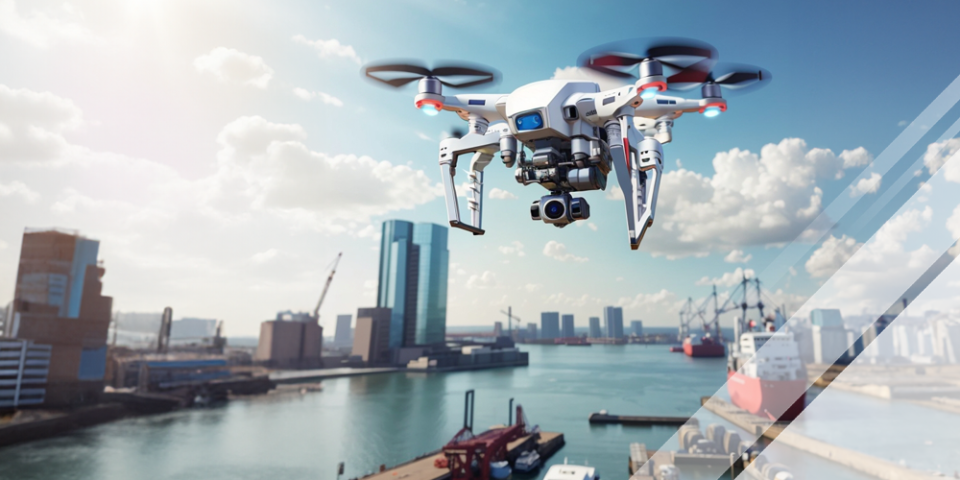Uniting Industry Leaders to Advance Drone and Aerospace Innovation, Setting New Standards Globally
In a landmark move, DronePort Rotterdam is thrilled to announce a series of strategic developments that firmly cement its position as a leader in the realisation of a fully integrated innovative mobility ecosystem spanning ports, airports, urban, and regional landscapes.
A Global Event: U-space Revolution Event in Rotterdam
Beginning with the inaugural launch of the ‘U-Space Revolution in Rotterdam’ on 5 March 2024, co-organised with the Port of Rotterdam and attracting 200 participants from 14 countries, this unique event marks the beginning of a new era in autonomous and uncrewed intelligent systems, such as drones. The conference serves as a platform to highlight the rising interest in the emerging potential of this technology and its expected impact on society. Additionally, it acts as a launching pad for DronePort Rotterdam’s strategic alliances.
Aerospace Delta Launch: Forging the Future of Autonomous and Uncrewed Intelligent Systems
At the core of this strategic vision is the Aerospace Delta initiative, stemming from the collective ambition of DronePort Rotterdam and its premier regional partners, including Unmanned Valley, the Aerospace Innovation Hub @TU Delft, InnovationQuarter, and STC (Scheepvaart en Transport College), with support from the City of Rotterdam and the Province of Zuid-Holland. With a newly formed coalition of 100 out of 260 entities under the Aerospace Delta umbrella, there is a unified commitment to transforming the region, and indeed the Netherlands, into a global hub for autonomous and uncrewed intelligent systems. This coalition focuses on innovation and industry transformation through education, testing, training, social entrepreneurship, investments, regulations, policies, and actively applying these initiatives operationally for broader impact.
Strategic Partnerships: Strengthening the Ecosystem Through Educational Innovation
In partnership with STC – the worldwide operating educational and research institution for the shipping, logistics, transport, and process industries – DronePort Rotterdam is collaborating on developing an extensive drone curriculum. This curriculum, covering the entire drone ecosystem, is tailored for both regular and professional education levels. It encompasses a range of drone-related educational content, from regulatory frameworks and safety protocols to practical applications, technological innovations, and policy implications. Additionally, these resources are being developed into online formats to cater to a broad audience, including students, professionals, and newcomers, ensuring everyone can access the information they need to engage with drone technology safely and effectively.
For the second half of this year, STC and DronePort Rotterdam are hosting the ‘Smart Vision Experience: Autonomous and Uncrewed Intelligent Systems’. The event serves to educate and inspire the current and next generations of industry leaders and innovators, showcasing the latest advancements in drone technology and autonomous and uncrewed intelligent systems.
In partnership with Drone Fusion – the international platform for drone researchers and schools innovating for a circular tomorrow – Saxion University of Applied Sciences and DronePort Rotterdam are developing a prime and future-proof platform to drive innovation, research, business, and excellence in the field for autonomous and uncrewed intelligent systems.
This partnership believes in the potential of drone technology to facilitate Europe’s digital, sustainable, and societal transitions, offering benefits for business and society to help build a resilient future. By connecting bright minds, makers, and entrepreneurs in the industry, our partnership is set to catalyse technological progress and market growth, setting new standards for the adoption and integration of autonomous and uncrewed systems worldwide. Ultimately, this partnership seeks to contribute to societal advancement and economic growth while skilling future generations and reskilling the current ones.

image: INSPIR8ION
A Collaborative Blueprint for Regional Advancement
The DronePort Rotterdam organisation and its regional collaboration with partners under the Aerospace Delta banner reflect our collective vision and dedication to the future of the Zuid-Holland region and beyond. Uniting pioneers across business, education, and government, we are establishing a strong foundation for a future enriched by autonomous and uncrewed intelligent systems, essential to our daily lives, economic growth, and community wellbeing. We encourage you to further explore this initiative and collective vision.













